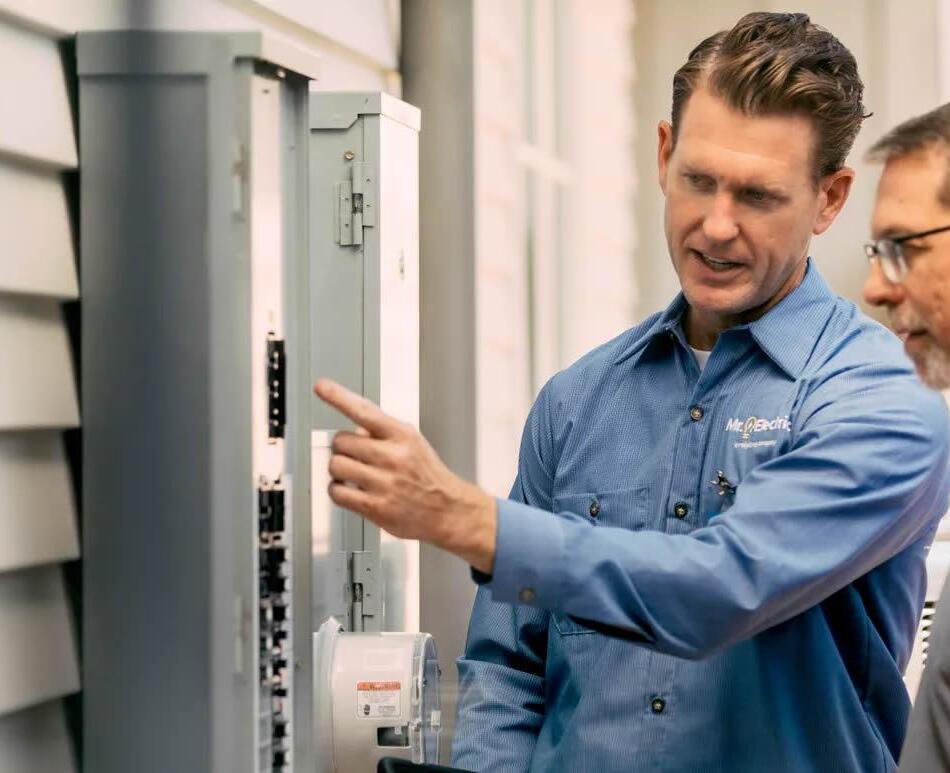Call this Friday to Get 15% OFF
Call this Friday to Get 15% OFF
24-Hour Emergency Electricians in Greer
Call this Friday to Get 15% OFF
Call this Friday to Get 15% OFF
24-Hour Emergency Electricians in Greer

The electrical panel is so humble, effective, and silent that most property owners never give it a second thought - until something goes wrong. It’s easy to forget that your electrical panel is doing some pretty heavy lifting behind the scenes, but responsible homeowners and business operators understand that the electrical panel deserves care and attention.
If you're not familiar with the electrical panel, then keep calm and read on. In this brief article brought to you by Mr. Electric, we introduce you to this integral part of the electrical system and take a closer look at how it works - and how it should NOT behave.
Those who are looking for certified electricians in Greer, SC and surrounding areas can call Mr. Electric to hire a uniformed local professional today. We're happy to address questions and concerns, schedule an appointment, or arrange an emergency electrical service for as soon as possible.
An electrical panel (also known as a breaker box, fuse box, or load center) is a box that you’ll find on a wall in a utility room, basement, garage, or hallway closet. Open the lid and you’ll see rows of switches called circuit breakers. Each one of these breakers controls power to a specific area of your building.
The electrical panel connects to the main power line from your utility company and acts as a traffic director by sending power where it’s needed while shutting down any circuit that behaves badly. That’s what makes it so critical: when a breaker trips, it’s often preventing overheating, electrical fires, or damage to appliances.
Now that we understand the general role of the electrical panel and circuit breakers, let's dive a little deeper. As it turns out, there are several types of circuit breakers. Here are a few common types you should know:
Your electrical panel isn’t forever. Over time, parts wear down, homes get renovated, and our power demands increase. What was once perfectly fine for a 1980s house might not be safe for a home full of smart devices, induction cooktops, and dual-zone HVAC, for instance.
Here are some signs that it might be time to consider an electrical panel upgrade:
To be clear, a circuit breaker repair can have you back on schedule many times - but this is something to determine with the guidance of a certified electrician.
Are you looking for certified and uniformed electricians with a proven track record? Mr. Electric is a reputable name with decades of industry experience, and we are proud to offer emergency electrical service. Call or message us at any time of the day to get in touch. Our live representatives and dedicated electricians are ready when you are.
We all know the big and dramatic electrical hazards: sparks flying, breakers tripping, and scorch marks on outlets. What’s easy to miss, though,…
Read More +The electrical panel is so humble, effective, and silent that most property owners never give it a second thought -…
Read More +We all know that electrical work is risky and dangerous—whether you’re taking a DIY approach or hiring someone else to…
Read More +If you own an electric car, charging it at home is super convenient. But can a local electrician in Boiling Springs, SC…
Read More +